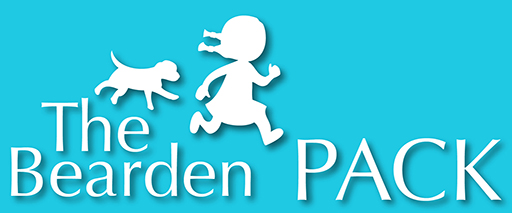As a golden retriever breeder, I have seen many families bring home their new puppies and I know that the first few days can be a challenging but exciting time. Bringing home a new puppy is a big responsibility and it is important to know what to expect in the first few days to ensure a smooth transition for both you and your new furry friend.
The first few days with your golden retriever puppy will be filled with many new experiences and challenges. Here are a few things to keep in mind during this time:
Expect Some Anxiety and Nervousness
Your new golden retriever puppy has just left their mother and littermates and is now in a completely new environment. It is normal for them to feel anxious and nervous during the first few days. They may cry or whine, and they may even have trouble sleeping at night. Be patient and give them plenty of love and attention to help ease their anxiety. For some, this may mean that you don’t get much sleep in the first couple nights. This is perfectly normal. There anxiety may also lead to diarrhea, so be prepared just in case of accidents.
Set Up a Safe and Comfortable Space
It is important to set up a safe and comfortable space for your new puppy to rest and relax. This space should be free from any hazards such as electrical cords, chemicals, and sharp objects. A crate or playpen can be a great option to keep your puppy safe and contained. Make sure the area is also comfortable with a soft bed, water, and toys to play with.
Begin Potty Training Immediately
Potty training is one of the most important things you will need to teach your new puppy. Begin potty training as soon as you bring your puppy home by taking them outside frequently and praising them when they go potty outside. Consistency is key in potty training and it may take several weeks or even months for your puppy to be fully trained. I tell everyone that every time a puppy wakes up, take them outside. Every time they eat, take then outside a few minutes after. Every time they start circling, take them outside.
Be Consistent With Feeding
Your breeder should provide you with a feeding schedule and recommended food for your puppy. It is important to stick to this schedule and feed your puppy the recommended amount of food to ensure they receive the proper nutrition they need. You may also want to invest in a slow feeder bowl to prevent your puppy from eating too quickly and potentially causing health issues. If you have multiple dogs or animals, make sure they have access to their own food without any pressure of the food being taken away. That way you prevent food guarding and other unwanted behaviors.
Begin Socialization Early
Socialization is crucial for a golden retriever puppy’s development. Begin socializing your puppy early by introducing them to new people, animals, and environments. This will help them become well-adjusted and confident dogs in the future. Just make sure those you bring in wash their hands and take off their shoes until they are fully vaccinated.
Schedule a Vet Visit
It is important to schedule a vet visit within the first few days of bringing your puppy home. The vet will examine your puppy for any health issues and provide you with important information regarding vaccinations, deworming, and other preventive care measures.
Monitor Your Puppy’s Behavior
Your puppy will likely exhibit some unwanted behaviors such as chewing and biting during the first few days. It is important to monitor their behavior and redirect them to appropriate toys and objects to chew on. Consistency and positive reinforcement are key in correcting unwanted behaviors.
In addition to these tips, it is important to remember that every puppy is unique and may have their own set of challenges and needs during the first few days. It is important to be patient and give your puppy plenty of love and attention during this time.
As a breeder, I always recommend new puppy owners to do their research and educate themselves on what to expect when bringing home a new golden retriever puppy. This includes reading books, watching videos, and reaching out to breeders and other experienced dog owners for advice. Also, use your breeder as an advocate to ask questions. Most breeders will offer advice as needed.
The first few days with your golden retriever puppy will be filled with new experiences and challenges. By setting up a safe and comfortable space, beginning potty training and socialization early, monitoring your puppy’s behavior, and being consistent with feeding and care, you can ensure a smooth transition for both you and your new furry friend.


Leave a Reply